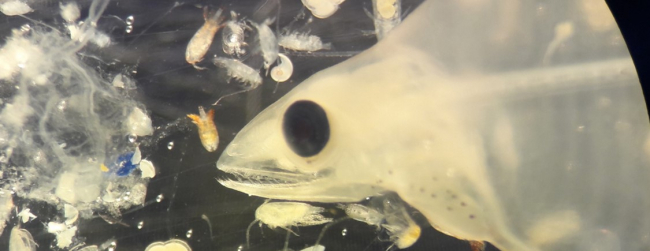Overview
Coastal ecosystems such as lagoons, estuaries or shelf waters are exposed to high levels of microplastic particle (MP) pollution mainly due to riverine discharges. In combination with the steadily increasing urbanisation of on- and offshore regions, this results in an ever-increasing pollution of these biologically and economically important waters.
Furthermore, lagoons and estuaries are the gateway for MP pollution to the global ocean. Essential for the understanding of the direct and indirect effects of MP particles on marine organisms is a sound assessment of the spatial and temporal variability of MP pollution in the sea.
Knowledge of the driving mechanisms of microplastic distribution and uptake in economically important coastal upwelling systems is of paramount importance for the management of fish stocks and other ecosystem services for the neighbouring states.
The main objective of the MicroplastiX project is to identify MP particles, investigate abundances, assess distribution pathways as well as accumulation and transport processes from coastal to deep-sea ecosystems and evaluate the potential impact on aquatic organisms.
Project Partners |
|---|
|
KTH Royal Institute of Technology, Sweden |





